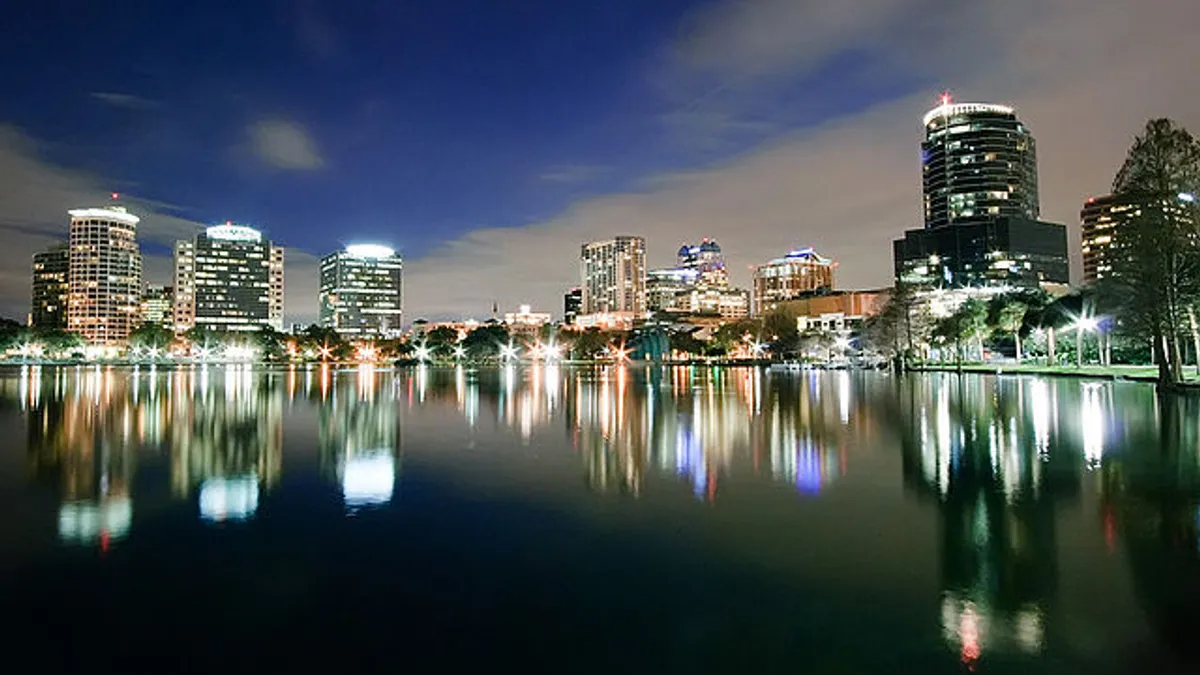Dive Brief:
- The city of Orlando, FL is seeking a consultant who will help create and coordinate a smart city master plan and roadmap, according to a request for proposals (RFP) issued by the city.
- According to the RFP, the city "intends to define what 'smart city' means to Orlando," and wants a plan that will touch on areas including public safety, transportation, waste and utilities, among others. Speaking to the Orlando Sentinel, Smart City Project Coordinator Michael Hess said the government also wants "a road map with actionable projects," although it has not defined any specific project goals.
- Responses are due in July with the goal of picking a consultant by early fall and developing a plan before next summer.
Dive Insight:
Orlando has taken steps to amp up its use of technology, including being named an autonomous vehicle (AV) proving ground by the U.S. Department of Transportation in 2017 and launching an autonomous shuttle pilot. The city has also worked to make city services more efficient through its "digital city hall" and has worked to get all of its energy from clean sources by 2050.
But the public call for consultants signals that Orlando’s government now wants a comprehensive smart city strategy that would coordinate those efforts and shape them around a single vision. That will especially help the city evaluate the myriad technology options, making it easier to find cost-effective tools that will work for the city’s goals. A bulk of the smart city work will also further the city’s greenhouse gas reduction goals, including by promoting more efficient mobility alternatives.
A key area of focus for Orlando will be traffic safety. The city was named the most dangerous for pedestrians by Smart Growth America in a January report, as it had been in a 2016 edition of the same report. In a press call to coincide with the report's release, Orlando transportation director Billy Hattaway said city leaders do "not want to see this reputation continue," and said he would step up investments in bicycle and pedestrian infrastructure, redesign roadways to expand sidewalk access and reduce speed limits in some areas. A comprehensive smart cities strategy that focuses on mobility and alternative transportation can also help supplement those Vision Zero goals and improve safety.











